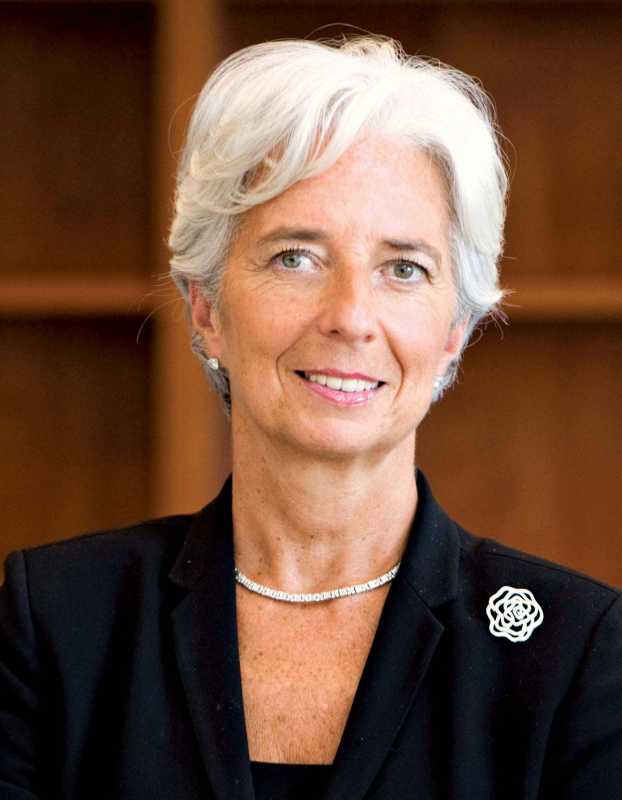People
Christine Lagarde – The Influential Economist and Former IMF Chief

Table of Contents
- Introduction
- Early Life and Education
- Career in Law and Politics
- Appointment as IMF Chief
- Key Takeaways about Christine Lagarde
- Facts about Christine Lagarde
- Conclusion
- FAQs about Christine Lagarde
Introduction
Christine Lagarde, a globally renowned economist and former Managing Director of the International Monetary Fund (IMF), has had a significant impact on the financial world. With her expertise and experience, she has played a pivotal role in shaping global economic policies and addressing financial challenges faced by nations around the world.
Early Life and Education
Christine Lagarde was born on January 1, 1956, in Paris, France. She obtained her undergraduate degree from the University of Paris X, where she studied political science. Later, she attended the Political Science Institute in Aix-en-Provence and received a Master’s degree in English.
Subsequently, Lagarde pursued her law degree at the Paris West University Nanterre La Défense and graduated with honors. Her educational background laid a solid foundation for her future career in law and finance.
Career in Law and Politics
After completing her education, Christine Lagarde began her career as a lawyer specializing in labor law at the international law firm Baker McKenzie. Her talent and dedication led her to become the firm’s first female Chairman in 1999, a position she held until 2004.
Lagarde’s success in the legal world catapulted her into French politics. In 2005, she was appointed as the Minister for Foreign Trade in France. Later, she served as the Minister of Agriculture and Fishing and then as the Minister of Economic Affairs, Industry, and Employment.
Appointment as IMF Chief
In 2011, Christine Lagarde made history by becoming the first woman to lead the International Monetary Fund (IMF). As the Managing Director, she played a crucial role in stabilizing global economies and guiding nations through financial crises.
Lagarde’s tenure at the IMF was marked by her determination to address economic inequality, promote sustainable growth, and strengthen international cooperation. She actively engaged with countries worldwide, advocating for policies that would create a more balanced and inclusive global economy.
Key Takeaways about Christine Lagarde
- Christine Lagarde is a globally recognized economist and former IMF Chief.
- She was the first woman to lead the International Monetary Fund.
- Lagarde has played a crucial role in shaping global economic policies.
- She is an advocate for financial inclusivity and sustainable growth.
- Lagarde has had a successful career in law before entering politics.
Facts about Christine Lagarde
| Fact | Description |
|---|---|
| Birthdate | January 1, 1956 |
| Birthplace | Paris, France |
| Education | University of Paris X, Political Science Institute in Aix-en-Provence, Paris West University Nanterre La Défense |
| Career Highlights | Lawyer, Chairwoman of Baker McKenzie, French Minister of Foreign Trade, Minister of Agriculture and Fishing, Minister of Economic Affairs, Industry, and Employment, Managing Director of the IMF |
Conclusion
Christine Lagarde’s remarkable journey from a lawyer to the Managing Director of the IMF demonstrates her unwavering dedication and vision for global financial stability. Her expertise in economics and her commitment to inclusivity and sustainable growth make her a respected figure in the financial world.
FAQs about Christine Lagarde
Q: What is Christine Lagarde’s current role?
A: Christine Lagarde is currently serving as the President of the European Central Bank (ECB) since November 2019.
Q: How did Christine Lagarde contribute to the global economy?
A: As the Managing Director of the IMF, Lagarde played a pivotal role in stabilizing global economies, guiding countries through financial crises, and advocating for sustainable growth and financial inclusivity.
Q: Is Christine Lagarde the first woman to hold such a significant role in international financial institutions?
A: Yes, Christine Lagarde made history by becoming the first woman to lead the International Monetary Fund (IMF).












